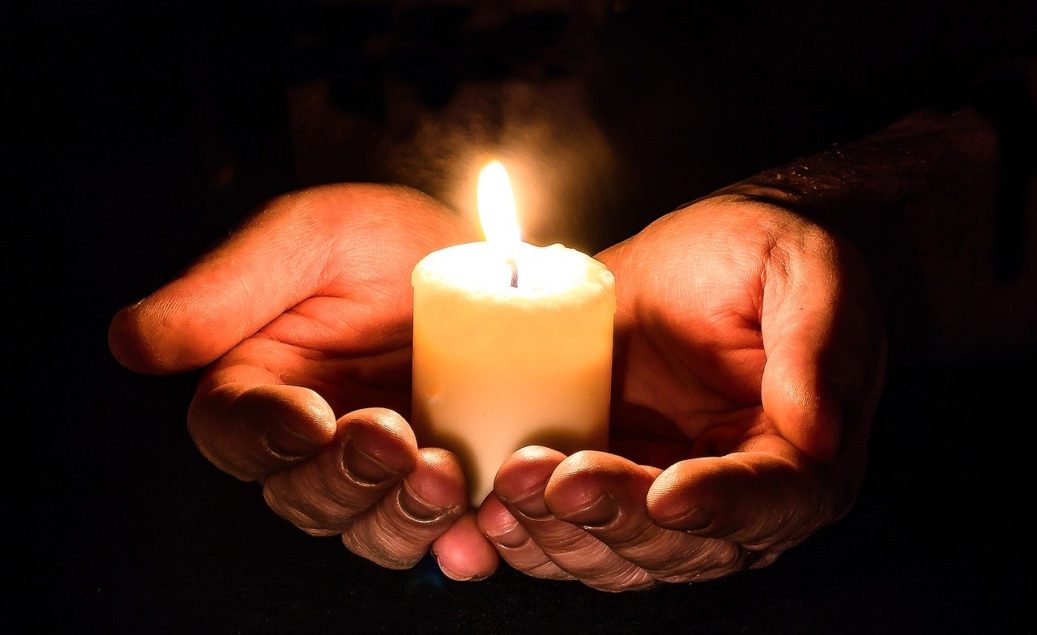The spirit of generosity glorifies God the Giver
Charles Vance Millar was a Canadian lawyer, businessman, bachelor, student of human nature, and practical joker. One of his twisted joys was dropping a dollar on the sidewalk, hiding, and watching people’s reactions at the discovery. However, Millar’s life is most fascinating because of his will that became fodder for gossip years after his death. On October 31, 1926, Millar succumbed to a heart attack. His will furthered his test of humanity’s ceaseless war between greed and principle.
He left three equal and valuable shares in the Ontario Jockey Club to two men who were vocal opponents of horse-racing and one shady character who would never have been allowed into the prestigious club. He left church ministers shares in the Kenilworth Jockey Club, plunging them into a moral dilemma that was the talk of the town. All the agonizing was over nothing; the shares were worth a half cent each! He bequeathed $700,000 of O’Keefe Brewing Company shares to seven Protestant ministers who were voices of temperance and prohibition with the stipulation that the only way they could receive the money was to participate in the management of the company and draw dividends. This joke got even better because O’Keefe was a Catholic-run business and Millar didn’t even own the shares!
To three lawyers who despised each other Millar left equal partnership in his Jamaican vacation home.
And, the best of all, Millar kickstarted what became known as the “Great Stork Derby,” a contest promising the bulk of his inheritance to the Toronto woman who gave birth to the most live children in the 10 years following his death.
Of course, Millar didn’t know that the Roaring Twenties of prosperity would be followed within three years of his death by the Great Depression. As times got hard for the many struggling families, the Derby became more than fun and games. Distant relatives came out of the woodwork to challenge Millar’s will, but he had set it up masterfully and it stood while many families feverishly wooed and waddled toward the prize.
By October 31, 1936 four women were tied with nine properly registered live births. Annie Smith, Kathleen Nagle, Isabel Maclean, & Lucy Timleck received $125,000 each at a time when the average weekly income was $12.50. It also made Charles Vance Millar, the bachelor, a pseudo-patriarch of 36 offspring, not to mention all the other kids born as a result of their parent’s determination to make love count.
Now, this historical anecdote is frankly more than a little peculiar. But don’t dismiss his quirkiness too flippantly. Millar’s playful will is actually confessional. His legal document began this way: “This Will is necessarily uncommon and capricious because I have no dependents or near relations and no duty rests upon me to leave any property at my death and what I do leave is proof of my folly in gathering and retaining more than I required in my lifetime.”
Who calls themselves a fool in their will?
We were created to live our lives for the glory of God. God gives His Holy Spirit that we will what He wills, love as He loves, and be holy as He is holy. The Spirit of God awakens us so we need never write a will to undo in death the folly of wasted years. If Jesus is Lord, then He must be Lord of all connected to life—including our gathering, saving and giving.
We cannot escape the glorious reality that God is an incredible Giver.
In fact, because God is love He cannot be anything other, for love cannot help but give. If the Spirit of God is in you, if Jesus Christ has become the leader of your life, then you are the most wonderful of beings: fully alive never to perish, abundant life grows in you bubbling up like a fresh stream, and you will begin to share in God’s nature to share. The joy of discipleship undoes the folly of simply gathering. The tendency to retain, clutch and grab is transformed into glad stewardship in the light of the selfless giving of God. You begin seeing your gifts as an opportunity to gain in order to share.
The joy of discipleship undoes the folly of simply gathering. The tendency to retain, clutch and grab is transformed into glad stewardship in the light of the selfless giving of God. You begin seeing your gifts as an opportunity to gain in order to share. Saving is an opportunity to increase the ability to share. To give, to “tithe” (i.e. give God the first tenth of his blessings), or to make “offerings” is freed from any law. In fact, many Christians get sidetracked by foolish and unprofitable debates over how much God deserves. Silly human, it’s all His! A tithe is just the beginning! He has lavished your sinful, broken, pitiful life with grace upon grace and this is the starting place of knowing the fullness of what Jesus meant when He said, “Freely you have received, freely give.” (Matthew 10:8)
This life of giving, in view of God’s nature, was picked up by the apostle Paul. At his tearful parting with the Ephesian church leaders he invites them to examine and model the way he lived. They are not to be those who covet and hoard. They were to employ their gifts to gain and save and not be a burden to others. This stewardship of life is rooted in what is one of the clearest windows into Paul’s theology and discipleship practice: “In everything I did, I showed you that by this kind of hard work we must help the weak, remembering the words the Lord Jesus Himself said: ‘It is more blessed to give than to receive.’” (Acts 20:35)
It is more blessed to give than to receive. What a rebellious, countercultural statement! It is often quoted pithily, but do we live this way?
Do we not more often, following our human nature—which shrewd Charles Vance Millar played upon — live as if the opposite were true? We like the idea that it is more blessed to give than to receive, but far too often we live as if Jesus misspoke and really meant it is more blessed to receive than give. We have a ways to go in keeping in step with the Holy Spirit (Galatians 5:13-26). A new surrender of our hearts is needed every day when we are bombarded with frustratingly hummable messages that stroke the gathering fool within. Goodness, a plethora of Christmas advertising just a few months ago urged us toward giving on the promise that the giver will get something too. This is just Scrooge with a smile.
To release what we have gathered to the glory of God is to reflect the nature of God and a sign we actually know him. If I do not hold all I have with open hands, then I forget that the scriptures unmercifully nail greed as idolatry (Colossians 3:5). So, gathering away and stingy in our giving, we find ourselves simultaneously idolaters and Charles Millarian fools who risk a sad lament: “I have been a fool in gathering and retaining more than I required in my lifetime.” We were made, I know, for greater joy than this.
About


